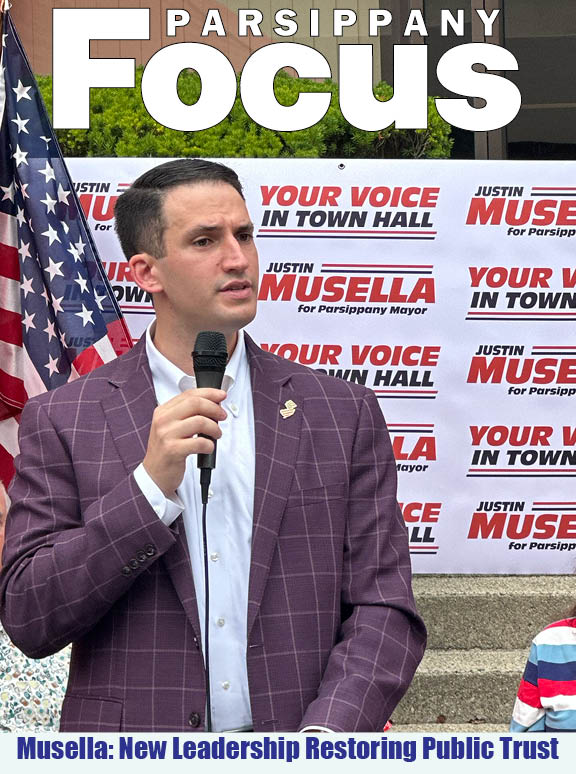Dear Editor:

Over the past six months, the Parsippany Council and Administration have put on a master class on how to alienate voters, minimize transparency, and ram through unpopular ordinances. As most readers know, the issue at hand is the use of PILOT (Payment in Lieu of Taxes) agreements that give large tax abatements to commercial developers, allowing them to forgo paying the school system portion of the total tax bill. This culminated in a seven-and-a-half hour-long meeting on December 28 with about 700 to 800 residents in attendance at which three PILOT-based ordinances were passed with many residents speaking in opposition and none speaking in favor. Even the Parsippany Board of Education is opposed to the use of PILOTS and was not swayed by any data presented. This was a very messy, opaque, unsatisfactory, and often inflammatory process that enabled the use of many cherry-picked data points and misleading assertions and never produced a clear analysis of the impacts of the PILOTs on taxes. Parsippany needs a better process for dealing with such contentious issues going forward.
Unfortunately, the post-COVID business environment has created a glut of office space nationwide as businesses have found that workers can be effective from home offices. Now that Parsippany has provided four PILOTs (including the 1515 Route 10 building), we can expect many other office-building owners to ask for similar tax reductions as their tenants’ leases expire and every developer will certainly ask for this treatment for new buildings. Retail space owners will also look for relief as their businesses are affected by online competition. Parsippany needs a better process for evaluating PILOTS and more importantly, informing, educating, and dialoguing with residents on the pros and cons of PILOTS or any other tax abatement program. Even though the three PILOT ordinances were passed, there is no better place to start developing such an approach than by conducting a post-mortem analysis of these three agreements and the associated resident communications/education process because there is so much history and so much detailed information available. Who knows, perhaps after such an effort some or most residents might agree with these PILOTs or the effort might convince the mayor and some on the council to stop, significantly modify, or change the criteria for such agreements. In any case, the objective should be to have an agreed-upon process and decision criteria for such assessments in the future.
The town council and mayor must commit to full transparency and good-faith communications. The current information process is not transparent. PILOT agreements are complex with multiple subjective assumptions such as discount rates, children added to the school system, the need for long-term contracts, alternative uses of the properties, etc. The current three PILOT agreements started to take shape over the summer of 2023. However, it was not until only two hours before the meeting on December 28, that the mayor sent out an email with a few cherry-picked, unverifiable data points in a last-minute attempt to sway public perception. During the meeting, residents were shown financial analyses they had never seen before. The data was hard to see, hard to hear, and very hard to evaluate and many asked why this had not been provided previously. Partially true statements from the council, such as the assertion that the schools would be funded because they submit their budget to the town and the town collects the money, could not be discussed.
The current communication process is not conducted in good faith. The council and mayor used tactics such as pushing to get these PILOT ordinances passed before the end of the year, without providing full information to residents. Poor transparency is invariably perceived as acting in bad faith. They changed the normal council agenda to first vote on the ordinances before allowing the general public speaking portion. They scheduled a meeting at 1:00 p.m., making it more difficult for working residents to attend. They used an excuse created by the town lawyer who said there were critical non-PILOT items that needed to be passed before year-end and meeting at 1:00 p.m. was the only way to address all items on the agenda. (If the non-PILOT issues were so critical, why did they not take the PILOT ordinances off the agenda to get the non-PILOT issues passed and move the PILOT ordinances to 2024?) They allowed only 1.5 minutes for comments from each resident. While all these actions may have been aboveboard, they appeared to be in bad faith and created the perception of an ulterior motive involving the council, mayor, developers, and the developers’ attorney. If the Mayor and council thought these PILOTs were such a good deal for taxpayers, they should have communicated better and shown the residents and the School Board the numbers and assumptions to prove it.
Below is a description of a highly transparent, good-faith process for dealing with this issue. It is recommended that the council and mayor adopt these principles. At the end of this process, there should be much more agreement than disagreement among the parties. This should be applied to the recent PILOT agreements to both test the process and explore its benefits.
- Provide complete information for stakeholders (residents and school board) at the start of the project and continue to update it as the project progresses.
- Start by developing a template that provides detailed, comprehensive information on these programs and includes costs, revenues for each project, and a comprehensive bottom-line analysis of the total impacts on taxes (town and schools) both with and without the PILOT agreements. Show all the pros and cons of the agreement.
- Provide this template to the stakeholders, obtain feedback and stakeholder buy-in, and finalize.
- Fill in the template for the projects including statements and support for all assumptions such as the number of additional children that would attend Parsippany schools, alternative uses of the properties, etc.
- Publicize this information and hold a Q&A session for the stakeholders to address all questions and refine the information based on the answers. This should be done with a flexible time limit on each question to explore it completely and a commitment to provide answers to all reasonable questions. Such a session need not be part of a formal council meeting, as has been done with budget developments.
- Demonstrate that the timeframes for decisions are reasonable and address stakeholder concerns.
- As new data is developed on any project, the public template must be updated and additional Q&A sessions held, if needed.
- The mayor and council must work to address the needs of the school board such that they either support the programs or are neutral. The council cannot expect the public to be in favor of programs the school board finds objectionable.
Finally, the mayor and council must show the same respect for the stakeholders that the council requests in meetings. The mayor and council must recognize that they have complete power and the public’s only recourses are their arguments, letters, and their physical voices and actions. When the council minimizes transparency and takes actions that are perceived as being in bad faith the public feels disrespected and reacts, often with rowdy behavior because they feel that is the only way they can have an effect. When the council tells them to be respectful, the public perceives the council as being, at best, oblivious to the disrespect they have demonstrated towards the public.
Ken Dolsky
Parsippany
















